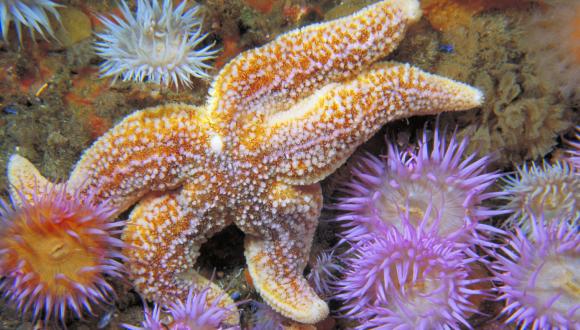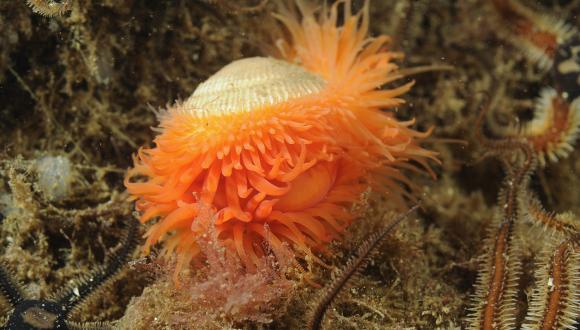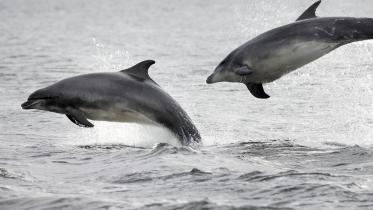Nature Restoration Fund (NRF) - Transforming Nature - Development Phase Guidance
Published: August 2022
Updated: August 2023

Transforming Nature - Development Phase Guidance
The strategic goal of the Nature Restoration Fund (NRF) is to catalyse action at a scale to protect and restore Scotland’s biodiversity on land and sea.
This guidance is specifically for applicants wishing to apply for Development phase funding.
Development phase funding may be applied for separately. All projects must be completed by 31 March 2026.
The draft Scottish Biodiversity Strategy defines clear priorities for the NRF and the impact we want projects to deliver. The NRF currently focuses on broad priority themes, which will be further refined on publication of the Scottish Biodiversity Strategy later in 2023. We would advise all applicants intending to submit an application following the launch of the Scottish Biodiversity Strategy to ensure they have read the strategy when it is published and consider how your project proposal aligns with the priorities
The priority themes for this round are:
- Habitat and species restoration: Management for enhancement and connectivity
- Freshwater restoration, including restoration of natural flows in rural catchments
- Coastal and marine initiatives which promote restoration, recovery, enhancement or resilience
- Control of invasive non-native species (INNS) impacting on nature
- Urban: Enhancing and connecting nature across, and between, towns and cities.
NRF will only support habitats, species and priorities as set out in the accompanying ‘Priorities for Action’ document on our website. You should use this document to help develop detailed proposals.
Recognising the complexities and challenges of developing and implementing multi-year, high value projects - particularly those being delivered through a partnership or collaboration of organisations and/or landowners – development phase funding has been made available to enable emerging projects to undertake key tasks and activity that would be required in advance of submitting a robust application to the Transforming Nature competitive stream.
About development phase funding
NRF development phase funding is intended to support preparatory activity that will enable emerging projects to submit fully developed delivery phase funding applications and move swiftly to implementation when funding is secured.
All applications for development phase funding must be for projects that are NRF eligible and will meet NRF priorities should delivery phase funding be secured. Eligibility and priorities are outlined in the two guidance documents referenced above. Securing NRF development phase funding does not guarantee a successful NRF delivery phase application.
Development phase funding is only available to support projects under the Transforming Nature stream – it is not available to support applications to the Helping Nature stream.
NRF development phase applications must meet NRF priorities but the applicant is not obligated to submit a delivery phase NRF application e.g. due to securing funding from other sources or emergent partnership issues. Where delivery phase funding is being sought from another funder, £250,000 must be the minimum overall grant value being requested.
Eligible development phase activity
NRF development phase funding is available to support projects that have already been identified as a possibility and have been subject to early discussion by organisations, individual landowners/managers or between a number of proposed partners. In these circumstances, there should be increased confidence that permissions and landowner agreements will be secured, that the development actions required will be achievable in a short timescale and that potential challenges or issues can, in part, be anticipated.
Eligible development phase activity is likely to fall into two broad categories, both of which can be applied for within a single application:
- Actions that will lead to refinement, detail and clarity on the specific activities that a project will implement and the biodiversity outcomes it will expect to secure (e.g. surveys, modelling, planning applications, detailed designs)
- Actions that will bring together organisations, landowners and/or land managers to progress ambitious project applications at a landscape or catchment scale. This can be across multiple (ideally adjacent) landholdings or sites which must be linked by a strategic objective (e.g. staff time to facilitate partnership development, securing landowner/manager agreements)
Who is eligible to apply
As set out in the NRF Guidance, development phase applications are invited from:
1. Constituted organisations.
a) Registered charities and trusts.
b) Communities
2. Private individuals and companies - where public benefit will be demonstrated.
3. Partnerships and organisations working collaboratively with others.
Where applications are received from partnerships or organisations working collaboratively, a lead applicant must be identified. If successful, the lead applicant will be required to accept the Terms and Conditions of the development phase Grant Offer, provide overall updates and claim funds on behalf of all partners. We will ask you to tell us how the project will be managed in your development phase application.
Where applications are received from an individual or organisation working in a project development/facilitation role, NRF will not fund on-going development activity that would otherwise be routine work and have happened anyway with resources already secured. Evidence will be required to demonstrate that staff or facilitator time requested of NRF is additional and required to enable development at increased scale or pace.
Public Bodies cannot be the principal beneficiary of a grant from NRF, including development phase funding, but can be a coordinator of, or funding contributor to, a wider partnership bid (where the match funding eligibility criteria are met). Any Bids with public body partners will be scrutinised to ensure funding is not delivering activities that would be expected to be undertaken by public bodies as part of their core functions or biodiversity duties.
Period of funding
We would expect development phase projects to last around 6 months, however development phase funding can awarded for up to a maximum of 12 months. Please be aware that if you wish to subsequently apply for Transforming Nature – Delivery funding following a development project that all Nature Restoration Fund projects can only be delivered up to the end of March 2026.
Eligible development phase activity
The following are examples of eligible development phase activity:
- Feasibility studies (based on early discussion of potential projects)
- Detailed design surveys to inform on the ground implementation
- Data gathering such as habitat and protected species surveys – field and desk based
- Engagement with stakeholders, delivery partners and landowners to secure involvement and commitments
- Consulting agencies e.g. SEPA, Forest and Land Scotland, NatureScot
- Exploring blended finance options and other funding opportunities for delivery phase
- Securing permissions and licenses
- Development of project plans including integrated habitat management, delivery, management, monitoring and evaluation
- Development of monitoring and maintenance plans post project
- Seeking quotes and engaging suppliers/contractors – availability and costs
- Monitoring and reporting of development phase
- Site/land investigation and feasibility activity such as soil sampling, habitat or ground mapping to inform vegetation management or tree planting
Our expectation is that training and skills development of staff or volunteers who will implement the project will be included in delivery phase applications. By exception, and where training needs can be shown to have value whatever the outcome of any subsequent delivery application, we will consider a case for their inclusion at development phase.
Ineligible development phase activity
The following activities are ineligible for NRF development phase funding:
- Employing a bid writer or writing any funding applications including NRF delivery phase
- Developing and establishing project governance structures including Partnership Agreements, Memorandum of Understanding, NRF funds transfer (where a partnership or collaboration). We expect such arrangements, where required as part of demonstrating effective governance of larger projects, to be submitted as part of the project delivery application
- Building organisational and staffing capacity to undertake large, complex projects and manage external funds in organisations and groups
- On the ground works for habitats and species that are ready for implementation
Eligible development phase costs
The following costs can be applied for:
- Contractor costs for example to undertake detailed design or feasibility studies
- Staff costs inclusive of salary, National Insurance and Employer Pension Contributions. The short term nature of development phase funding is such that we do not anticipate creation and recruitment of new posts. The fund therefore expects to cover the cost of existing staff having either a proportion of dedicated project time or additional hours.
- Where there are staff costs, organisational and overhead costs (Full Cost Recovery) to cover office accommodation, equipment and running costs and wider staff support (e.g. finance, IT) are eligible. To note we cannot fund staff time to complete NRF claims
- Travel and subsistence to cover staff and any volunteers supporting development phase activity for organisations. A copy of your Travel and Subsistence policy will be required in support
- Irrecoverable VAT
- Lead applicant costs – staff time and on-costs where development phase applications are received from a partnership or organisations working collaboratively (but not costs associated with establishing any additional partnership governance). Any additional levy/management fee will be ineligible
- Equipment and materials required during the development phase where these are not available through other means e.g. hire or match funding/in-kind contribution. Note - Equipment and resources required in the delivery phase are not eligible for development phase funding.
Development phase funding: Award level and match funding
There are no minimum or maximum award values for development phase applications. We expect the development phase costs to be proportionate to the anticipated costs and benefits of the proposed project application, and ensure good value for money.
All applications will be required to confirm cash or in-kind contributions. There is a maximum NRF intervention rate of 90% of total development phase costs. Total costs are inclusive of in-kind contributions. The NRF will, where justified, cover up to 100% of cash costs for the development phase for projects that have the potential to make a significant contribution to the Priorities for Action and can demonstrate proportionate in-kind support (a minimum of 10%).
Cash and in-kind contributions to projects cannot be matched from the following funding programmes:
- Peatland Action
- Green Infrastructure Funds
- Natural and Cultural Heritage Fund
- Nature Restoration Fund:
- Helping Nature rounds
- Transforming Nature rounds (development phase)
- Edinburgh Process Fund
- Biodiversity Challenge Fund
- Scottish Marine Environmental Enhancement Fund (SMEEF)
- Any other funds and grants administered by NatureScot.
We recognise that while funds can’t be matched from these sources, making connections to projects funded by them, and working in catchments/sites alongside, may allow increased action and is encouraged.
Cash and in-kind contributions must be in support of the costs and activities to be undertaken during the development phase only – those relating to project delivery are not eligible.
Cash or in-kind contributions to cover the claiming and reporting of progress of NRF activity (as distinct from undertaking and completing evaluation reports) must be confirmed within each application. These are not eligible NRF project management costs but can be included as a proportionate element within the minimum 10% match funding that is required.
Procurement
The key principles of public sector procurement of being able to demonstrate openness, fairness, transparency and equal treatment when purchasing goods, services or works using public funds apply. These principles must be applied to procurement exercises in successful projects. It is also essential to demonstrate that value for money has or will be achieved. To help achieve this you must get competitive quotes and tenders for all goods, works and services in accordance with the contract thresholds outlined in our Grant Application Form and any Grant Offer we issue. Undertaking procurement exercises are the responsibility of the grant recipient however we may ask you to seek our approval before letting a contract. This will be based on the value of the contract and/or may relate to some of the project risks you have identified. Any approvals required will be clearly set out in any Grant Offer that we issue.
Procurement expectations are included in fund specific information including in our Grant Application Form, in any Grant Offer that we issue and in our Standard Terms and Conditions, available on our website. The ‘Nature Restoration Fund (NRF) Procurement Guidance’ extends that information and clarifies in further detail what they mean in practice.
How to apply for development phase funding
You should read the NRF Outcomes and Eligibility, How to Apply and Contacts and Resources pages on our website. Please then download an Expression of Interest form and submit it to [email protected]
You can submit an EOI when you are ready to do so. Please consider in advance which application deadline you are planning to apply for. We would strongly recommend that you submit an EOI significantly in advance of an application deadline so you have time to consider our feedback before you progress to an application.
We aim to respond to your EOI within 20 working days. If you submit an EOI within 20 working days of an application deadline we cannot guarantee that we will be able to respond in time and you should wait for the next application deadline to apply.
Please note if you wish to apply for Transforming Nature – Delivery funding following a development project that all Nature Restoration Fund projects can only be delivered up to the end of March 2026. Securing NRF development phase funding does not guarantee a successful NRF delivery phase application.
EOIs are a mandatory requirement for applicants.
Application deadlines
If we assess your proposed project could meet NRF priorities, we’ll send you an application form, with a unique project reference number. This will only be made available to those projects who have been offered the opportunity to submit a full application. We will not accept any applications without a project reference number. The opportunity to complete a full application does not guarantee that it will be successful.
- Monday 9 October 2023 at 12 noon for a decision in late December/early January
- Monday 29 January 2024 at 12 noon for a decision in late April/early May
- Thursday 25 April 2024 at 12 noon for a decision in July
- Monday 12 August 2024 at 12 noon for a decision in November
Queries
If, having read the Priorities for Action and Information for Applicants documents, you have any queries on the fund, please send an email to [email protected] in the first instance, thank you.





